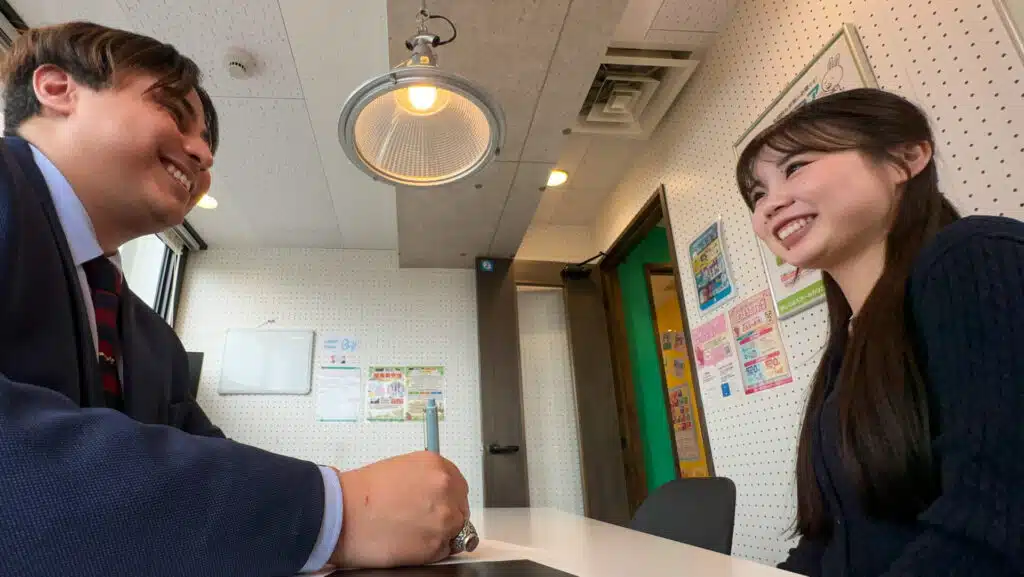How Much Should I Save To Bring To Japan?
Table of Content
- Introduction
- How much should I save?
- Start-up costs
- First month's expenses
- What's included?
- Ways to keep costs down
- First paycheque
Japan isn’t the most expensive place in Asia, but it’s no bargain bin either. It sits somewhere between affordable TEFL hotspots like Thailand and high-end cities like Singapore, which means budgeting matters.
In a previous article, we asked TTA alumnus and ALT (Assistant Language Teacher) Matthew de Kock about the cost of living in Japan as a TEFL teacher. Now, he’s back with practical advice on how TEFL teachers new to Japan can financially prepare for the big move, especially when it comes to upfront costs and the wait for that much-anticipated first paycheck.
Read more: What Is An Assistant Language Teacher In Japan?
If you’re about to start your TEFL journey in Japan, or even just thinking about it, you’ve probably asked yourself, “How much money should I bring to Japan?” or “What does it cost to get set up before my first paycheck?”
I’ve been there, and trust me, it’s a smart question to ask. Moving to Japan is exciting, but it comes with start-up costs that can surprise you if you’re not prepared. But, with the right info and a fail-proof savings plan, you can arrive confident and ready to go from day one.
How much should I save before moving to Japan?
A realistic savings target for most first-time TEFL teachers moving to Japan is ¥250,000 to ¥400,000 (approx. $1,700 to $2,800 USD). This should cover:
- Start-up costs before and just after arrival
- Living expenses before your first paycheque
- A safety buffer for unexpected costs
Of course, the actual number depends on where you’re placed (Tokyo vs. smaller cities), what your job includes (housing, flights, transport, etc.), and how you manage your lifestyle early on.

Start-up costs: what you’ll need to pay before or upon arrival
Here’s what you’ll likely need to spend before or shortly after landing in Japan:
✈️ Flights: $800–$1,800 (USD)
Flight prices vary a lot depending on where you’re flying from, the time of year and how early you book. Here’s a look at typical round-trip economy fares to Tokyo or Osaka:
- London: $900 – $1,500
- New York: $1,200 – $1,800
- Los Angeles: $800 – $1,300
- Sydney: $800 – $1,300
💡 Tips to save:
- Book 2–3 months ahead.
- Fly midweek or off-season (April–June, Sept–Nov).
- Consider budget airlines like ZIPAIR or Scoot.
Some employers re-imburse flights after a few months, but many don’t. Always confirm this before signing your contract.
🏠 Accommodation set-up: ¥50,000–¥100,000 ($350–$700)
Even when your company arranges housing, you’ll usually cover:
- the first month’s rent,
- move-in fees or deposit,
- basic household items (bedding, cooking gear, etc.).
Company apartments are often small and usually meant for one person. If you’re coming as a couple, you may need to secure your own housing.
Keep in mind that many landlords in Japan are hesitant to rent to foreigners (gaijin) due to concerns over language barriers or short-term stays. Workarounds include share-houses, gaijin-friendly rental companies and companies specialising in foreign tenants.
🚅 Transportation pass or commuting costs: ¥5,000–¥15,000 ($35–$100)
Your school may re-imburse this, but many don’t. You’ll likely need to cover your first month’s train or bus costs. If commuting daily, budget for a train pass (IC card like Suica or Pasmo).
🛂 Residence registration & insurance: free to ¥30,000 ($0–$200)
Once you arrive, you’ll register your address at city hall and sign up for the national health insurance system. Registration is free, but some areas collect a portion of your insurance premium immediately.
🍽️ Groceries and essentials: ¥20,000–¥40,000 ($140–$280)
Expect a few initial trips to the supermarket and 100-yen stores to stock up on food, toiletries, and kitchen basics. Factor in some convenience store meals and snacks during your first jetlagged week.
First month’s expenses before your first paycheque
Here’s what life costs in your first few weeks, assuming no job-sponsored perks or reimbursements:
Rent (1K/share): ¥40,000 – ¥75,000
(*1K refers to a one-room apartment with a kitchen.)
- Utilities/internet: ¥8,000 – ¥15,000
- Food: ¥25,000 – ¥45,000
- Transportation: ¥5,000 – ¥15,000
- Phone/SIM/data: ¥2,000 – ¥4,000
- Miscellaneous (toiletries, etc.): ¥5,000 – ¥10,000
Total Estimate: ¥85,000 – ¥165,000
(That’s $600 to $1,200 USD depending on location and lifestyle.)

What’s often included in TEFL jobs in Japan (that can reduce costs)?
Many jobs help cut down upfront costs—some more than others. Here’s what may be included:
Accommodation support:
- Employer-arranged apartments or shared houses.
- Rent is deducted from salary later (not upfront).
Visa sponsorship
This is standard for all reputable TEFL jobs. The employer handles the paperwork and no visa fee is required.
Paid training
A few companies pay you during training or orientation, which helps cover early expenses.
Health insurance registration
Some employers help with this admin task and contribute toward premiums.
Typically not included:
- Flights (unless stated)
- Meals
- Furniture or appliances
- Commuter pass (sometimes reimbursed, often not)
Ways to keep costs down
For settling into Japan, focus on simple, cost-effective habits that can ease your transition. Here’s what I recommend to keep your expenses low during those first weeks:
- Living frugally for your first 4–6 weeks can make a big difference.
- Convenience stores are your friend. 7-Eleven, Lawson and FamilyMart have affordable and surprisingly healthy options, like onigiri (rice balls), sandwiches, and bento boxes.
- Choose shared housing. Share houses are cheaper, require no key money (a non-refundable payment made by the tenant to the landlord when signing a rental contract), and often include utilities. It’s also a great way to meet other expats.
- Shop at 100-yen stores. These shops have everything from dishes to stationery to toiletries — for just ¥100 a piece.
- Use SIM cards for foreigners. Go for low-cost plans from companies like Sakura Mobile or Mobal. Don’t overspend on a big data plan right away.

When will I get my first paycheque?
Most schools in Japan pay once a month, often at the end of the month. That means:
- If you start mid-month, expect to be paid at the end of the next month.
- If you start early in the month, you’ll still wait 4–6 weeks for your first full check.
That’s why having at least ¥250,000–¥400,000 saved is so important. You’ll need it to stay afloat until your first payday.
The numbers are in and the verdict is that Japan is within reach with a healthy financial buffer. Matthew’s insights show that being financially ready isn’t just about hitting a number, but about knowing where your money goes, what to expect, and how to make your yen stretch in those early weeks.
If you’re keen to start crunching those numbers and are ready to optimise your savings for life in Japan, check out TEFL Jobs in Japan and fast-track your way to the buzz of Harajuku style and the calm of traditional zen gardens.
Table of Content
- Introduction
- How much should I save?
- Start-up costs
- First month's expenses
- What's included?
- Ways to keep costs down
- First paycheque
Japan isn’t the most expensive place in Asia, but it’s no bargain bin either. It sits somewhere between affordable TEFL hotspots like Thailand and high-end cities like Singapore, which means budgeting matters.
In a previous article, we asked TTA alumnus and ALT (Assistant Language Teacher) Matthew de Kock about the cost of living in Japan as a TEFL teacher. Now, he’s back with practical advice on how TEFL teachers new to Japan can financially prepare for the big move, especially when it comes to upfront costs and the wait for that much-anticipated first paycheck.
Read more: What Is An Assistant Language Teacher In Japan?
If you’re about to start your TEFL journey in Japan, or even just thinking about it, you’ve probably asked yourself, “How much money should I bring to Japan?” or “What does it cost to get set up before my first paycheck?”
I’ve been there, and trust me, it’s a smart question to ask. Moving to Japan is exciting, but it comes with start-up costs that can surprise you if you’re not prepared. But, with the right info and a fail-proof savings plan, you can arrive confident and ready to go from day one.
How much should I save before moving to Japan?
A realistic savings target for most first-time TEFL teachers moving to Japan is ¥250,000 to ¥400,000 (approx. $1,700 to $2,800 USD). This should cover:
- Start-up costs before and just after arrival
- Living expenses before your first paycheque
- A safety buffer for unexpected costs
Of course, the actual number depends on where you’re placed (Tokyo vs. smaller cities), what your job includes (housing, flights, transport, etc.), and how you manage your lifestyle early on.

Start-up costs: what you’ll need to pay before or upon arrival
Here’s what you’ll likely need to spend before or shortly after landing in Japan:
✈️ Flights: $800–$1,800 (USD)
Flight prices vary a lot depending on where you’re flying from, the time of year and how early you book. Here’s a look at typical round-trip economy fares to Tokyo or Osaka:
- London: $900 – $1,500
- New York: $1,200 – $1,800
- Los Angeles: $800 – $1,300
- Sydney: $800 – $1,300
💡 Tips to save:
- Book 2–3 months ahead.
- Fly midweek or off-season (April–June, Sept–Nov).
- Consider budget airlines like ZIPAIR or Scoot.
Some employers re-imburse flights after a few months, but many don’t. Always confirm this before signing your contract.
🏠 Accommodation set-up: ¥50,000–¥100,000 ($350–$700)
Even when your company arranges housing, you’ll usually cover:
- the first month’s rent,
- move-in fees or deposit,
- basic household items (bedding, cooking gear, etc.).
Company apartments are often small and usually meant for one person. If you’re coming as a couple, you may need to secure your own housing.
Keep in mind that many landlords in Japan are hesitant to rent to foreigners (gaijin) due to concerns over language barriers or short-term stays. Workarounds include share-houses, gaijin-friendly rental companies and companies specialising in foreign tenants.
🚅 Transportation pass or commuting costs: ¥5,000–¥15,000 ($35–$100)
Your school may re-imburse this, but many don’t. You’ll likely need to cover your first month’s train or bus costs. If commuting daily, budget for a train pass (IC card like Suica or Pasmo).
🛂 Residence registration & insurance: free to ¥30,000 ($0–$200)
Once you arrive, you’ll register your address at city hall and sign up for the national health insurance system. Registration is free, but some areas collect a portion of your insurance premium immediately.
🍽️ Groceries and essentials: ¥20,000–¥40,000 ($140–$280)
Expect a few initial trips to the supermarket and 100-yen stores to stock up on food, toiletries, and kitchen basics. Factor in some convenience store meals and snacks during your first jetlagged week.
First month’s expenses before your first paycheque
Here’s what life costs in your first few weeks, assuming no job-sponsored perks or reimbursements:
Rent (1K/share): ¥40,000 – ¥75,000
(*1K refers to a one-room apartment with a kitchen.)
- Utilities/internet: ¥8,000 – ¥15,000
- Food: ¥25,000 – ¥45,000
- Transportation: ¥5,000 – ¥15,000
- Phone/SIM/data: ¥2,000 – ¥4,000
- Miscellaneous (toiletries, etc.): ¥5,000 – ¥10,000
Total Estimate: ¥85,000 – ¥165,000
(That’s $600 to $1,200 USD depending on location and lifestyle.)

What’s often included in TEFL jobs in Japan (that can reduce costs)?
Many jobs help cut down upfront costs—some more than others. Here’s what may be included:
Accommodation support:
- Employer-arranged apartments or shared houses.
- Rent is deducted from salary later (not upfront).
Visa sponsorship
This is standard for all reputable TEFL jobs. The employer handles the paperwork and no visa fee is required.
Paid training
A few companies pay you during training or orientation, which helps cover early expenses.
Health insurance registration
Some employers help with this admin task and contribute toward premiums.
Typically not included:
- Flights (unless stated)
- Meals
- Furniture or appliances
- Commuter pass (sometimes reimbursed, often not)
Ways to keep costs down
For settling into Japan, focus on simple, cost-effective habits that can ease your transition. Here’s what I recommend to keep your expenses low during those first weeks:
- Living frugally for your first 4–6 weeks can make a big difference.
- Convenience stores are your friend. 7-Eleven, Lawson and FamilyMart have affordable and surprisingly healthy options, like onigiri (rice balls), sandwiches, and bento boxes.
- Choose shared housing. Share houses are cheaper, require no key money (a non-refundable payment made by the tenant to the landlord when signing a rental contract), and often include utilities. It’s also a great way to meet other expats.
- Shop at 100-yen stores. These shops have everything from dishes to stationery to toiletries — for just ¥100 a piece.
- Use SIM cards for foreigners. Go for low-cost plans from companies like Sakura Mobile or Mobal. Don’t overspend on a big data plan right away.

When will I get my first paycheque?
Most schools in Japan pay once a month, often at the end of the month. That means:
- If you start mid-month, expect to be paid at the end of the next month.
- If you start early in the month, you’ll still wait 4–6 weeks for your first full check.
That’s why having at least ¥250,000–¥400,000 saved is so important. You’ll need it to stay afloat until your first payday.
The numbers are in and the verdict is that Japan is within reach with a healthy financial buffer. Matthew’s insights show that being financially ready isn’t just about hitting a number, but about knowing where your money goes, what to expect, and how to make your yen stretch in those early weeks.
If you’re keen to start crunching those numbers and are ready to optimise your savings for life in Japan, check out TEFL Jobs in Japan and fast-track your way to the buzz of Harajuku style and the calm of traditional zen gardens.
 United States
US
United States
US








